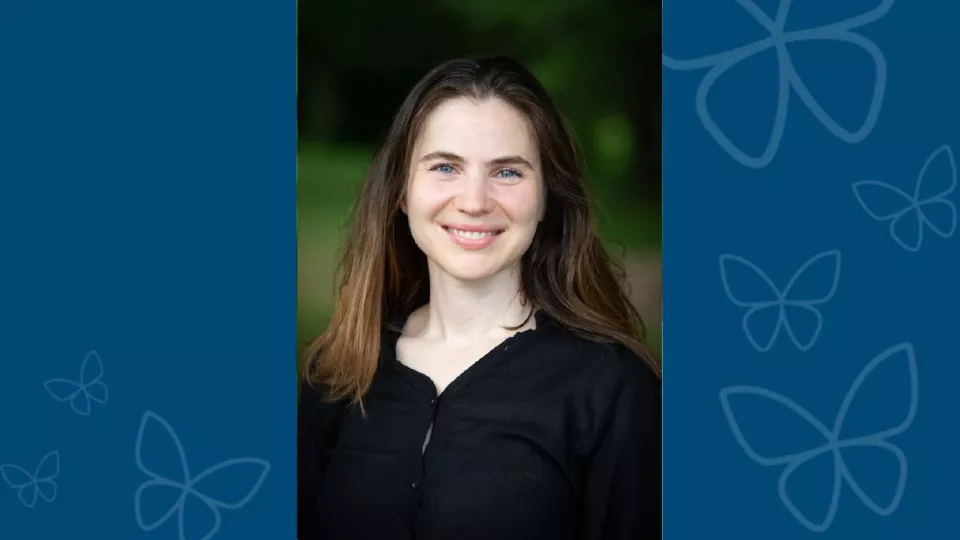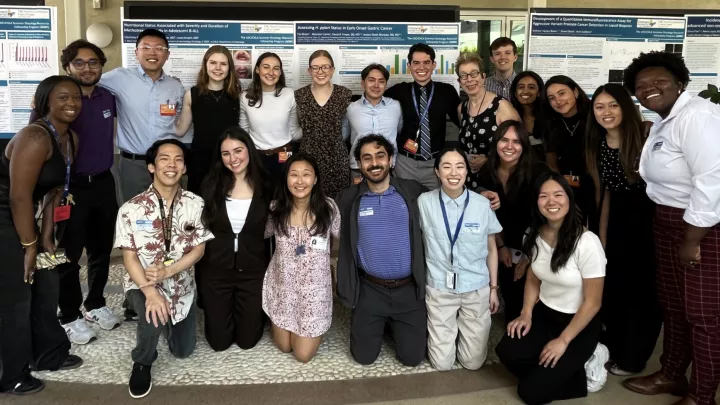
Research Faculty Spotlight: Katherine Matho, PhD
The multifaceted opportunities for analysis of the brain inspired Katherine Matho, PhD, to pursue neuroscience research. “I became interested because of the multidisciplinary approach you can take in thinking about how the brain functions,” Dr. Matho explains.
During her undergraduate years at Union College in New York, Dr. Matho researched the visual descending neurons in dragonflies. “I saw the full breadth of research avenues that you can take, from using high speed video imaging to observe dragonflies in the field, to investigating dragonfly physiology and how it relates to descending neuron activity in the lab,” she says.
Dr. Matho later earned her master’s and PhD degrees in neuroscience at Sorbonne University in Paris, France. “Then, as a postdoctoral researcher, I worked on the National Institutes of Health (NIH) Brain Initiative Project, helping to map the cell types and connectivity in the motor cortex region of the brain, which is important for limb movements,” she explains.
After working at Cold Spring Harbor Laboratory in New York, Dr. Matho recently moved to CHLA’s Neurological Institute. “CHLA’s focus on child development and The Saban Research Institute’s interest in the genetic and environmental factors underlying pediatric diseases make this the ideal place for my work, and I’m excited,” she says.
Today, Dr. Matho’s research focuses on how development impacts the diversity and function of different cell types in the brain over time. “There’s a big knowledge gap in terms of tracking the history of these different cell types across time rather than just looking at them at specific moments in development,” she explains. “My overarching goal is to use a combination of new technologies offering single-cell resolution and high throughput to track molecular and connectivity signatures of cells over time, bridging the gap in the definition of these cell types and including the developmental trajectory as a defining feature.”
One of Dr. Matho’s current projects focuses on how and when during pregnancy a baby’s neurons are born in the brain from progenitor cells, and how this timing affects the connectivity between neurons. Another project involves tracking the developmental trajectory of certain brain cell types that are vulnerable in neurodevelopmental disorders like DiGeorge syndrome, which can lead to an increased risk for schizophrenia, to learn more about the potential mechanisms that cause those vulnerabilities.
Outside of research, Dr. Matho enjoys spending time with her three children, playing the piano, and taking part in water sports and skiing.


